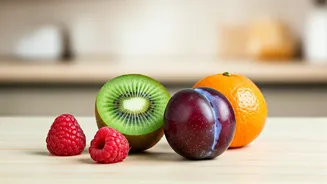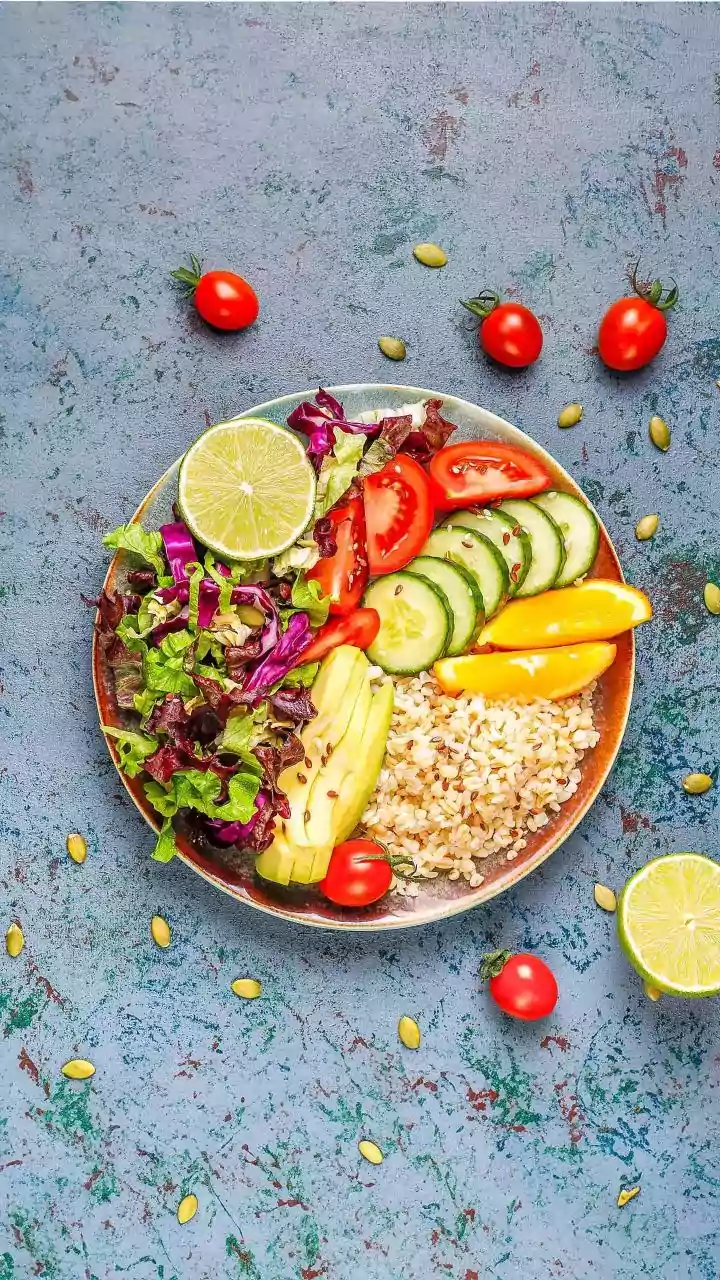Fruit Power: Introduction
Colon cancer, like other diseases, can be managed and even prevented with proactive measures. This article highlights the significance of dietary choices
in mitigating the risk of colon cancer. By focusing on particular fruits, we aim to offer a practical, evidence-based strategy to improve your health. These dietary adjustments, when incorporated regularly, provide essential nutrients and antioxidants, which are vital in fighting disease. These fruits offer a delicious and enjoyable way to protect your well-being. They provide a range of health benefits beyond just cancer prevention. This article will help you understand each fruit's specific benefits and explain how they can contribute to your overall health, allowing you to take charge of your well-being. Incorporating these fruits into your daily life can be a step toward a healthier and more proactive lifestyle. By making informed food choices, you can support your body's natural defenses and reduce your risk of serious health issues.
Apple: The Daily Advantage
Apples, often praised as nature's perfect snacks, are also effective in cancer prevention. Rich in fiber, specifically pectin, apples assist in the gut's detoxification processes. Pectin binds to carcinogenic compounds, facilitating their swift removal from the body, thus reducing the time those compounds can affect the colon. Apples have antioxidants, which can neutralize free radicals and thereby lower inflammation that can trigger cancer. Beyond their fiber and antioxidant content, apples provide essential vitamins and minerals that boost the immune system. Regularly including apples in your diet can lower your risk of colon cancer. Incorporating apples is easy; they are available throughout the year and can be consumed in many forms. Whether it's a simple snack, an addition to a salad, or a component of a smoothie, apples are a versatile addition to any diet. This makes it easier to adopt a health-conscious approach to your daily eating habits.
Berries: Powerful Antioxidants
Berries, packed with antioxidants, are valuable allies in preventing colon cancer. They contain compounds such as anthocyanins, which not only give berries their vibrant colors but also combat cellular damage caused by free radicals. These antioxidants protect cells from harm. Free radicals are a key driver of inflammation and cell mutation, which, if unchecked, can lead to cancer. Berries also contain fiber and other crucial nutrients that enhance gut health. They also support the growth of beneficial gut bacteria. The fiber helps regulate bowel movements and ensures toxins are quickly removed, minimizing exposure time. A variety of berries—strawberries, blueberries, raspberries—can be included in your diet. Enjoy them fresh, add them to your breakfast, or blend them into your drinks. By doing this, you can provide your body with a steady supply of protective compounds. Berries are a sweet and effective method for keeping your colon healthy, making them a delicious and nutritious option for those keen on cancer prevention.
Citrus Fruits: Vitamin Boost
Citrus fruits like oranges, grapefruits, and lemons are packed with vitamin C and other compounds that fortify the immune system and protect against colon cancer. Vitamin C is a powerful antioxidant, that defends cells against oxidative stress and lowers inflammation. Beyond vitamin C, these fruits contain numerous other beneficial compounds, including flavonoids, that support overall health and enhance the body's defense mechanisms. Citrus fruits are easy to integrate into your daily diet. You can add them to your breakfast, use them in salads, or enjoy them as a refreshing juice or snack. They provide not just health benefits, but also add a refreshing flavor to your daily diet. By including citrus fruits in your diet, you provide your body with the resources it needs to safeguard against colon cancer. Furthermore, the high fiber content of citrus fruits can improve digestion and encourage regular bowel movements.
Bananas: Gut Health Support
Bananas offer a unique combination of nutrients that support gut health and protect against colon cancer. They are rich in resistant starch, a form of fiber that isn't easily digested, instead, it acts as a prebiotic, nourishing the beneficial bacteria in your gut. These bacteria produce short-chain fatty acids (SCFAs), especially butyrate, which is known for its ability to reduce inflammation and promote colon health. Bananas are a convenient and affordable fruit. They're easy to eat on the go and can be included in various dishes, like smoothies or breakfast cereals. Their high fiber content enhances digestion and prevents constipation, ensuring that toxins are removed efficiently from the body, thereby reducing the risk of colon cancer. Consuming bananas regularly supports the gut and provides a range of benefits that work together to maintain good colon health and lower your chance of developing colon cancer.




















